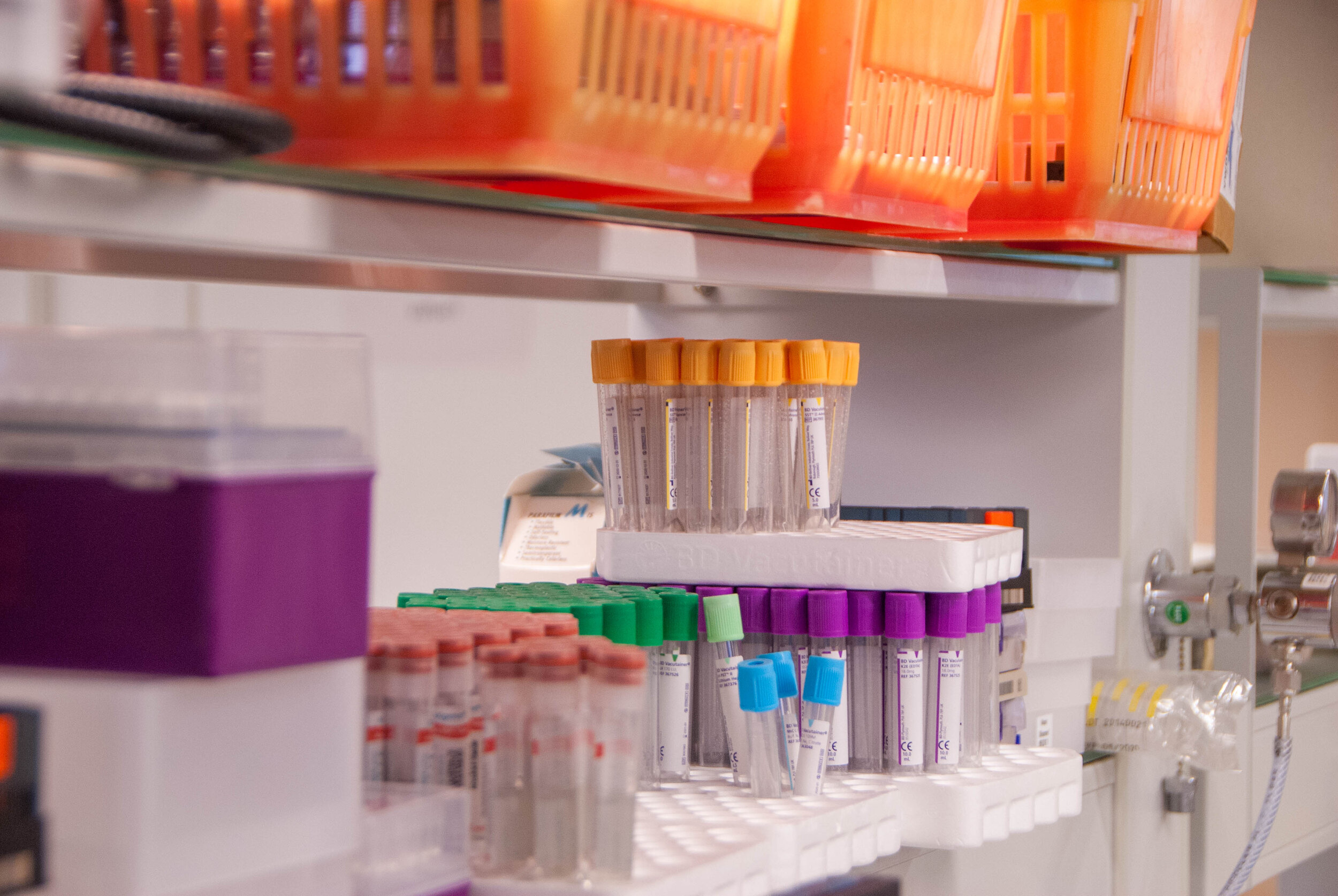Research
Therapeutic Drug Monitoring
As infliximab was one of the first therapeutic monoclonal antibodies on the market to treat inflammatory bowel disease and as treatment alternatives were limited, many data exist on how to optimize the treatment with infliximab.
(Pharmaco)genetics and genomics
The VLECC study (Vlaams Erfelijkheidsonderzoek Crohn en Colitis Ulcerosa or Flemish genetic research on Crohn’s disease and ulcerative colitis) has allowed us to collect (after informed consent) DNA and serum of affected individuals together with first degree family members representing a total of several thousand individuals. The majority of these individuals have been analysed on the Immunochip. This, together with our participation in the IIBDGC (International Inflammatory Bowel Disease Genetics Consortium) allows us to be at the forefront of several genetic and pharmacogenetic studies conducted in the field of IBD.
Microbiome
Microbiome plays an important role in the pathogenesis of IBD. Several pioneering studies supporting the importance of the intestinal microbiota were performed by our research group. We helped to describe the intestinal dysbiosis in both CD and UC. More recently, we described a microbial signature able to predict pouchitis following colectomy and IPAA in UC.
Intestinal stem cells
The intestinal epithelium is the primary barrier between the gut lumen and the underlying tissues and consists of a single cell layer. The epithelial cells arise from Lgr5+ intestinal stem cells (ISCs). These cells are located at the bottom of the crypt and upon cell division migrate upwards away from the stem cell niche and undergo differentiation.
Immunology
Recent advances in IBD genetics have led to the discovery of possible underlying disease pathways such as autophagy, the unfolded protein response (UPR), bacterial recognition and inflammasome signaling. However, until now it remains unclear how genetic variation in these pathways may translate into phenotypical/functional effects. We want to elucidate the effect of genetic variation in these selected pathways starting from IBD patient derived intestinal epithelial cells of which the genetic background has been characterized. Our functional ex vivo approach will allow us to characterize and subdivide patients according to which of these pathways is the most perturbed and thus might be the main disease driving factor in a certain patient. This research will be a first step toward personalized management of IBD which we believe will become the way to go in the future.
Intestinal barrier
The gut mucosa is constantly exposed to a huge burden of dietary antigens, diverse microorganisms and external compounds. Its ability to act as a barrier against the passage of potentially harmful molecules is therefore critical for normal homeostasis.
Quality of care
As a lifelong disease with an unpredictable outcome, IBD is associated with a high economic burden to society and a negative impact on the patient’s Quality of life. In the last 15 years new medical and surgical options have become available to patients but the Quality of care (QOC) in IBD is variable despite the introduction of European consensus guidelines. In day-to-day clinical care it is a challenge to provide IBD patients with the level of continuous care required to address their clinical needs. The provision of good quality care in chronic diseases requires different approach with greater access to information for patients, education and empowerment.
IBD surgery
Despite the increasing number of medical options, a significant part of IBD patients will need surgery at some point. Therefore our group is undertaking efforts to develop new surgical techniques, further improving outcome in IBD patients.








